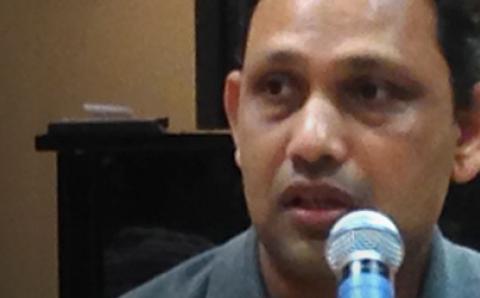Reformed churches have not been spared the violence that has become the standard fare in news from Nigeria. On October 19, congregations of the Christian Reformed Church of Nigeria (CRC-N) were attacked in villages near the town of Wukari in Taraba State. Rev. Yohanna Obadiah was killed in the attacks, along with as many as 30 church members.
Earlier in the year, the Universal Reformed Christian Church (NKST) issued a press release deploring the “killing, wounding, and maiming of hundreds of people on their ancestral lands” in the east-central states of Nigeria.
The Christian Reformed Church in North America is a sister denomination in full ecclesiastical fellowship with both the CRC-N and NKST (formerly known as Church of Christ in the Sudan Among the Tiv).
The NKST has raised the question whether the current conflict is related to terrorism in the disguise of search for pasture. The nomadic Fulani people, almost entirely Muslim by faith, have frequently been associated with such conflict. In the past the grazing of their livestock on the grasses and harvested farms of central Nigeria led to occasional skirmishes, sometimes fierce. But nothing on the scale of recent days.
According to CRC-N President Rev. Caleb Ahima, the “people who are involved in what is happening—the suffering, bloodshed, and the wanton destruction of human lives and property—come in large numbers, no longer with (herding) sticks but with sophisticated weapons.” He said that attacks such as that of October 19 are “against Christians by Islamic insurgents who have invaded the southern part of the state.”
It is clear that northeastern Nigeria, centered around the city of Maiduguri in Borno State, is embroiled in Islamic insurgency under the terrorist group Boko Haram. That group’s stated intention is to overthrow the Nigerian government and develop a strict Islamic state. Boko Haram is infamous for its kidnapping of over 200 teenage girls from their school in Chibok in April and subsequent declarations that the girls had been married off and sold into slavery.
Boko Haram now controls vast swaths of northeastern Nigeria after months of almost daily attacks on towns and villages. The Church of the Brethren in Nigeria (EYN), a denomination that is involved with World Renew and Christian Reformed World Missions in theological and HIV/AIDS training, is a prominent church in the area. According to EYN’s President, Rev. Samuel Dali, 3,000 church members have been killed. In addition, 180 pastors have been displaced and 70 percent of the churches have been destroyed. On October 29, the EYN denominational headquarters was attacked and taken over by the insurgents.
Though Christians and churches have been targeted by Boko Haram, so have government officials, security forces, mainstream Muslims, and mosques. The November 28 bombing of the Central Mosque in the northern city of Kano, killing over 100, has been widely attributed to Boko Haram. Some of the most horrific attacks have been in markets, schools, and taxi-parks, resulting in indiscriminate killing.
Church leaders have urged the Nigerian government to take up its responsibility for protection of citizens. Rev. Dali writes, “My call is for them to repent of their compromising stand against the insurgents and be serious with the responsibility God has given to them.” Rev. Ahima of the CRC-N speaks candidly: “The church never encourages violence. We preach peace and we stand by it. (But) if the government does not do anything to stop it, the people will be tempted to take up arms and defend themselves.”
Nigeria is scheduled to go to the polls early in 2015, but with large areas of the country in a virtual state of war, the entire election process is in jeopardy.
It is not clear that the violence in the areas of the Nigerian Reformed churches is directly related to Boko Haram. But as David Tyokighir of World Renew in Nigeria writes, there are “different levels of multi-faceted crises leading to colossal loss of lives and property. Hearts are hurting and the suffering is deep.”
About the Author
Albert Strydhorst, special to The Banner. Strydhorst served as a CRC missionary in Nigeria from 1994-2012.









